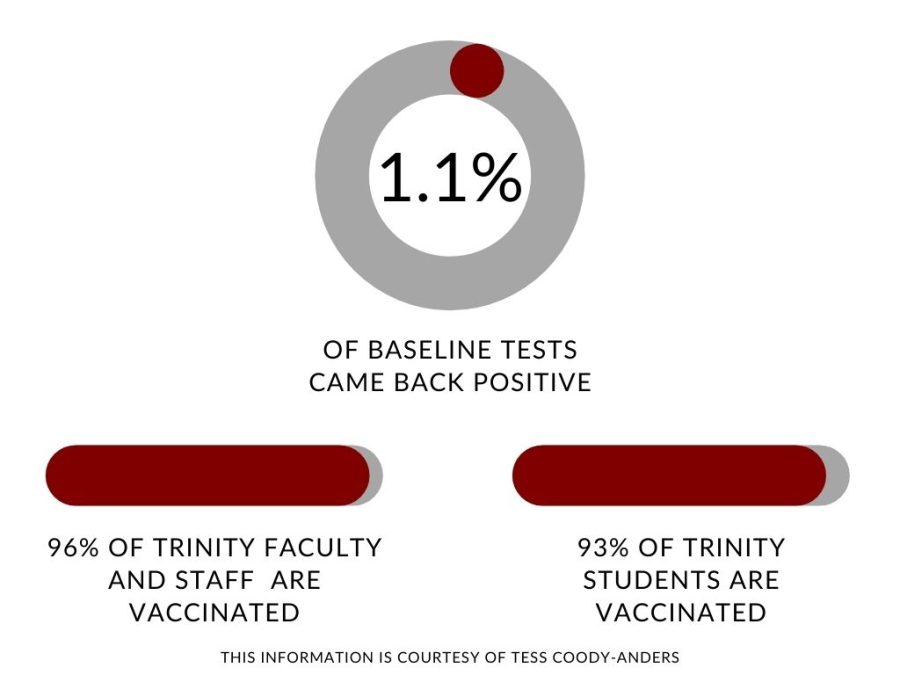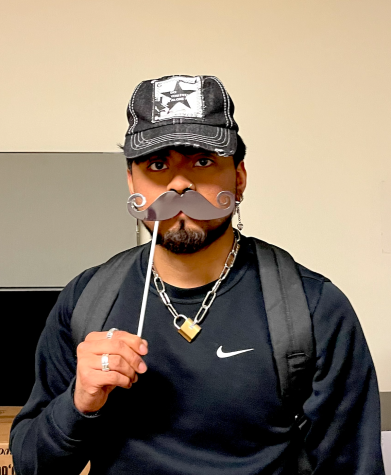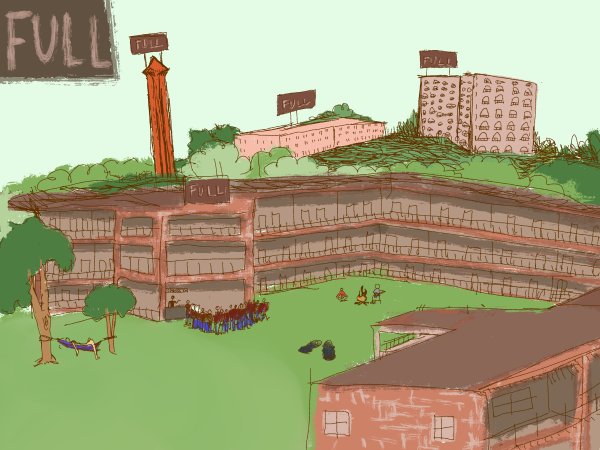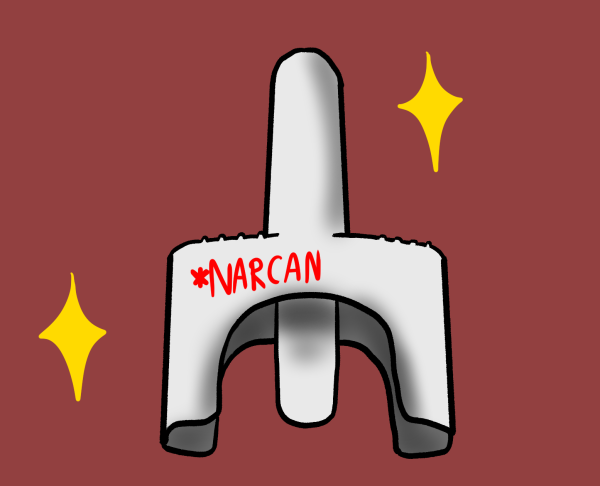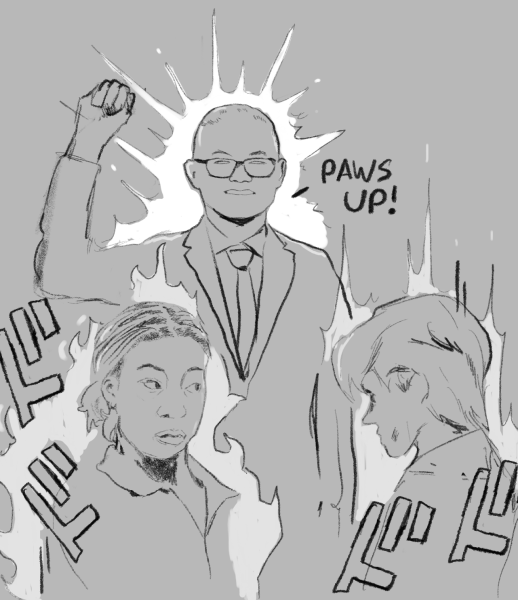The Omicron variant brings changes to the spring calendar
Originally set to start on Jan. 12, Trinity’s spring 2022 semester was pushed back to Jan. 31 due to concerns over the Omicron variant. With spiking COVID numbers in Bexar County, the Nerve Center and COVID testing team decided that later start date would be the best course of action for students and staff. Trinity University figured that San Antonio’s Omicron spike would take place around the original start date.
“The primary factor was looking at the predictive models that we were seeing from the CDC and from Bexar County, seeing that we would be on the peak of our spike or approaching that spike on that date when students were supposed to move back in,” said Marcy Youngdahl, Director of Integrated Counseling & Health Services and director of the COVID-19 clinic. In order to make this choice, Trinity looked at COVID cases among communities that returned to campus early.
“The week that we made that decision, we started to see the cases rise already in some of our athletic teams who were already on campus. We did baseline tests for a small sample of 50 coaches and athletes and we had a 20% positivity rate in that group,” Youngdahl said.
One of the major considerations in delaying the start of campus operations was caring for students who tested positive. Additionally, the Nerve Center predicted there wouldn’t be enough people available to operate campus with the high number of students, faculty and staff who tested positive.
“We were concerned for our faculty and staff, who would also be experiencing high incidences of positivity and it was becoming very clear that it was likely that departments wouldn’t be available,” said Tess Coody-Anders, Vice President of Strategic Communications and Marketing and leader of the Nerve Center. “Rather than try to skeleton crew the operations of the university, we decided to do a hard reset and extend break two weeks and allow faculty and staff to remain remote in an effort to get past the peak.”
As students returned to residence halls on Jan. 25, the COVID team provided baseline testing as they have done in previous semesters. Upon returning to campus, numbers have been higher than they have been at any point in the pandemic, with 49 students in isolation and quarantine as of Jan. 31. However, Youngdahl urges people not to worry about these high numbers because of the relatively mild symptoms of the variant.
“This spike is like four times higher than at any other spike in the pandemic,” Youngdahl said, “and it’s actually much higher than that in reality because those are the reported numbers. Omicron has been much more transmissible and has resulted in much more infections. It’s reassuring when you really see that hospitalizations have been roughly the same as our previous spikes and that deaths have been much lower, so you really are seeing that proportionally, you know, the people in the hospital versus how many have been infected have been a lot lower this time around, so really good evidence to say this is a less problematic strain, causing less serious disease.”
Many students that tested positive on the move-in dates had to move back home until the CDC recommended time period was up. Sophomore political science major Danae Barkocy reflects on her experience being sent home.
“Since I live in Austin, they told me to quarantine for five days and then I came back,” said Barkocy. “I think it was a good idea to push the start date back for the safety of the campus. I know there were a lot of people on vacation over Christmas, so just knowing that if people were going to catch COVID, they were going to catch it at home. I was sad about it but I understood.”
However, this decision also brought up concerns among the student body about the changing dates. Especially among seniors, many of whom had post-graduation plans, the revised schedule is problematic.
“If you had immediate plans for the day after commencement or the Monday after graduation, they have been disrupted. Whether they have to extend a lease by a week or delay a job or a vacation, those are understandable concerns. I know that a variety of places on campus have been providing support for that,” Coody-Anders said.
The Nerve Center is confident about Trinity’s plans to deal with the variant.
“The goal is to mitigate spread so we can operate effectively, go to class, teach, live, learn and play on campus. As we begin to live with the virus more, everyone will begin to see policies and protocols adapt to that notion,” Coody-Anders said.

My name is Emma and I am a sophomore from Lockhart, Texas. I have worked at the Trinitonian since Spring 2021. I am an English major and hope to become...

